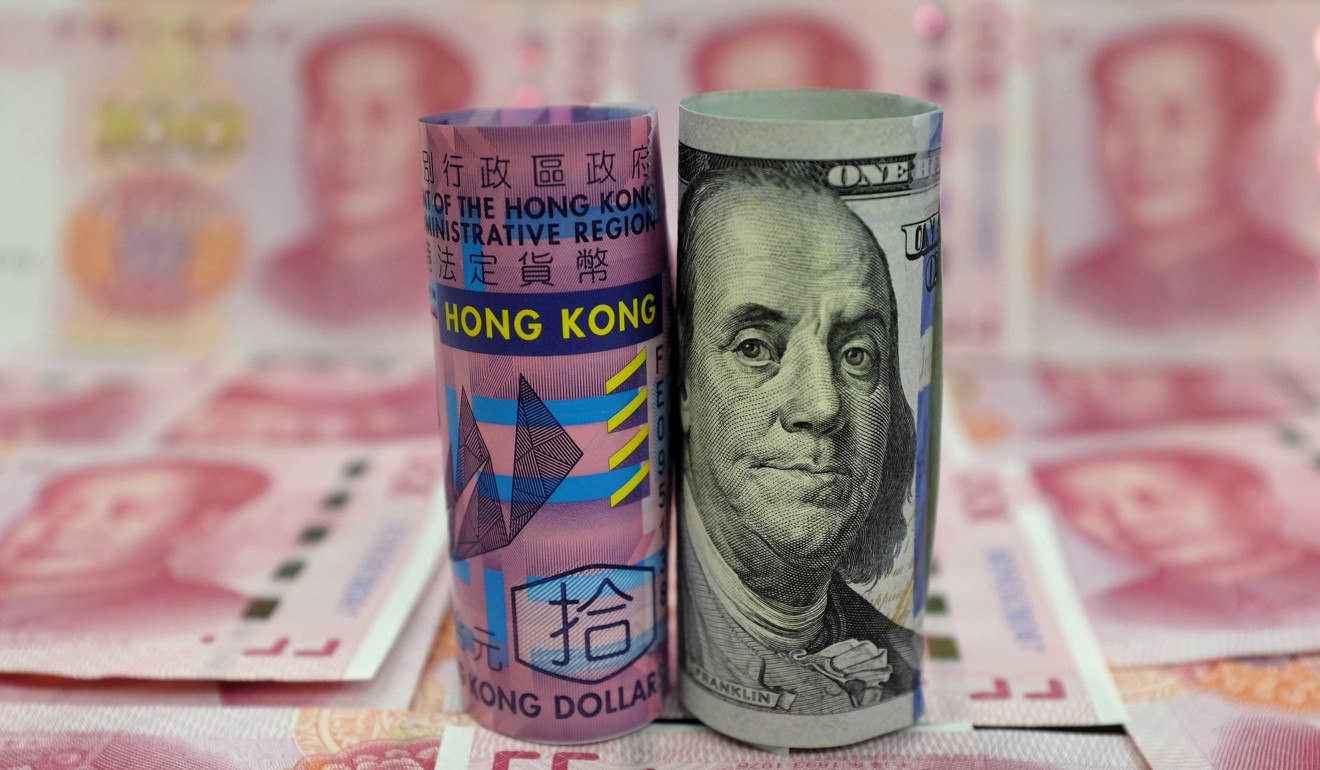Why the yuan will rise, even though China faces a ‘tough economic battle’ in 2019
- Expect China’s fiscal loosening and foreign investment reform to lift the yuan, especially as the effects of US stimulus from last year continue to wear off and a trade war settlement looms

Lowering the goal for growth in China’s economy earlier this month, Premier Li Keqiang warned of a “tough economic battle ahead”. Only last week, figures showed that Chinese industrial output for the first two months of 2019 hit a 17-year low. It would be easy for investors to be downbeat on China and the yuan, but that might be a costly error.
Admittedly, the timing of the Lunar New Year holiday is likely to have distorted the industrial output data, yet it is undeniable that China’s economy faces challenges. But it is also clear that Beijing has plenty of policy levers to pull and every incentive to do so.
Looser Chinese fiscal policy, epitomised by a raft of tax cuts, will give China’s economy a boost and when Li talks of creating more than 11 million jobs this year, investors should regard that as a serious intent, not political soft-soap.
“Large-scale tax cuts and fee reductions would affect the government, cutting its own flesh,” Li said on Friday. “This kind of reform is equivalent to turning one’s blade inward and slitting one’s wrist.”
Li’s colourful language makes the point, to markets and beyond, that Beijing is serious.
Elsewhere, although a combination of loose fiscal policy with tight monetary settings supported US dollar appreciation in 2018, times are changing. The sugar-rush effect of last year’s US fiscal stimulus is subsiding while the Federal Reserve has become more cautious about raising interest rates.
That said, although the free-floating US dollar has arguably lost some of its allure, that does not automatically make a case for continued yuan strength.
Also, with Li saying on Friday that China might yet have recourse to reserve requirement and interest rate cuts, the mix of Chinese fiscal and monetary policies will not be strictly comparable with that which prevailed in the US in 2018 which supported US dollar appreciation.
Nor, with the yuan operating in a managed float system, does the currency market have carte blanche to set the renminbi’s value. Indeed, the yuan’s breadth of movement might even end up being more constrained if a currency component, limiting the capacity of the renminbi to depreciate, forms part of a wider China-US trade deal.
But the foreign exchange market makes relative judgments and should conclude that Beijing’s domestic policy moves will provide a substantive tailwind for the Chinese economy at the same time as a possible China-US trade war settlement is still a reasonable expectation.
Given that the US-China trade war has been a material headwind for the Chinese economy, a settlement should provide an economic stimulus. That should support the yuan, especially if investors gain added security from any trade deal which incorporates a mechanism to constrain the renminbi’s capacity to weaken.
Additionally, Beijing is seeking to make the investment environment more attractive to foreign money.
Inflows of capital from overseas can only be encouraged by last week’s enactment of a new foreign investment law, due to come into force at the start of next year, that seeks to allay investor concerns about issues such as forced technology transfers to Chinese partners and unfair market access.
It is also notable that some analysts, such as TS Lombard’s chief China economist Bo Zhuang, have recently tempered their bearishness on the yuan.
HSBC wrote on Friday that it had lowered its year-end forecast for the US dollar/renminbi exchange rate to 6.75 from 6.95, though it should be said that the bank’s view still encapsulates a broader element of US dollar resilience.
Perhaps moves in the Hong Kong dollar are also pointing towards a stronger yuan. Simon Derrick, chief currency strategist at US bank BNY Mellon, wrote on Friday that since December 3 there has been “an [84 per cent] negative correlation between the performance of the [Hong Kong dollar] against the [US dollar] and that of the [yuan] against the [US dollar]. In short, each time the [yuan] strengthened the [Hong Kong dollar] was more likely than not to weaken.”

This time around, could the Hong Kong dollar’s drift to the weak end of its band versus the US dollar be the precursor for renewed yuan appreciation? Time will tell, but that notion does fit comfortably with a wider narrative suggestive of yuan strength.
While the US dollar’s allure has faded somewhat, tailwinds behind the Chinese economy are growing. China is already loosening fiscal policy and seeking to attract more foreign capital. A US-China trade settlement may be in the offing and could leave less room for the renminbi to depreciate.
It might prove an expensive error if investors were to succumb to a temptation to be downbeat about China and the yuan.
Neal Kimberley is a commentator on macroeconomics and financial markets